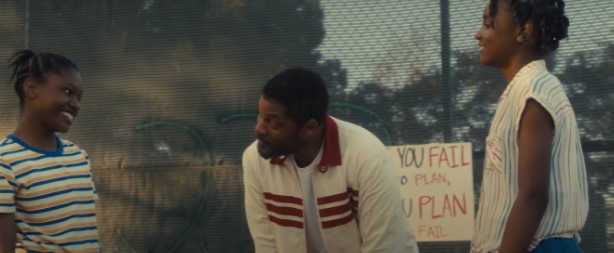Oscars 22 - Best Picture Contenders
Will the Academy spring another surprise?

It’s that time of year again - when film lovers and filmmakers from all over the globe get to take a minute off and revel in the glorious works of the year gone by, while also giving themselves a silent pat on the back for being part of this huge global storytelling industry. It is time for the 94th Academy Awards. In anticipation let’s take a look at some of the films in the reckoning for best picture.
The one that stands out for being purely that rare cross over between awards darling and blockbuster is Denis Villeneuve’s much loved adaptation of Dune. Dune is a spectacular cinematic masterpiece which would have been a sureshot number one during the years when the Academy focused their energies on awarding the best cinematic achievements rather than trying to make sociopolitical statements or encouraging Indie cinema. It is unlikely that this spectacularly mounted, acted, and engrossing narrative will take home the top honours. However, watch for it to make a killing in the technical awards including cinematography, score and sound design.
Next up is King Richard. Helmed by Reneildo Marcus Green and starring Will Smith in a career defining titular role, King Richard tells the story of how Richard Williams, father of Venus and Serena Williams charted the course for their inspirational success. It is a classical Hollywood tale of triumph against all odds and the not-at-all subtle tug-at-your-heart style of filmmaking reflects this theme well. The film paints in broad strokes and unabashedly tries to evoke emotion out of its audience, and much to its credit it succeeds.
Smith turns in one of the best performances in his career wherein he manages to make us root for a character who is stubborn, frustrating, and often illogical. However, as in real life, all of King Richard’s audacities are finally proven justified when his daughters Venus and Serena go on to become two of most celebrated tennis players of all time, just as their father predicted. Yes, the film is guilty of white-washing a thing or two (or many) about the man’s character, but that is cinema. It is not real life. And filmmakers have to make choices in order to tell the story they want.
Again, there was a time when the Academy would, above all else, reward films which managed to make a mark in the hearts of the audiences. The last time that happened was with Greenbook in 2019 when the Viggo Mortesen starrer surprised everyone by staging a huge upset at the awards. So while it seems likely that King Richard is a bit behind the times as far as award-winning potential is concerned, it certainly is a film worth viewing. For many reasons including family, perseverance, self-belief, and some commentary on American society and the subtle way it still perpetuates racism.
Kenneth Branagh’s deeply personal Belfast starring Jamie Dornan and Judi Dench is quite the outlier in the best picture category. For one, it is the first time in Branagh’s long and illustrious career that the veteran actor and filmmaker has been recognized by a jury in the way he deserves. The film is a black and white view of a very violent time and place in Ireland’s history that shows the religious and political chasms between Catholics and Protestants through the eyes of an eight year old child, whose family is confronted with leaving the home they have known for generations, and leave.
Setting the film in black and white is a creative masterstroke because it enunciates the innocent worldview of the child who is our entry into this complex world of Irish history. Jude Hill, who plays that little boy, is an absolute revelation and can light up the screen with one look. He personifies the qualities of childhood the loss of which the director seems to be lamenting – namely innocence, energy, naughtiness and discovery.
Despite this, Belfast is not Branagh’s best film – the man has many a masterpiece to his credit – and I would personally be surprised if the Academy were to vote in its favor. It is a great film, just not necessarily the best or best suited in this year’s line up to win the coveted golden statue.
One of the strongest contenders this year is Adam Mckay’s satirical take on everyone and everything that makes the times we live in what they are, Don’t Look Up. It has an enviable star cast headlined by Leonardo Dicaprio, Jennifer Lawrence, Meryl Streep and Jonah Hill and is likely the most relevant film of the year as it mixes entertainment and social messaging in the most exhilarating way possible. Though the Academy does not usually award films like this, Don’t Look Up might be an outlier simply because of how topical it is. Surely, for many years to come when people look back at Hollywood in 2021, it will be the most talked about film along with Dune.
Sian Heder’s CODA (Child of Deaf Adults) is the kind of indie tear jerker that the Academy has been favoring in recent years. But this is not a film resting its laurels on its premise. It is a well written, well acted, and well paced film which evokes what it aims to within the audience without resorting to too much emotional manipulation or histrionics. The film tells the story of 17 year old Ruby who finds herself torn between pursuing her dreams of studying music at Berkley and abandoning her parents who she has come to believe are really dependent on her emotionally and otherwise. It is a fine film which deserves all the accolades it has been getting in the run up to the Oscars and is a serious contender for the top prize.
Then, noted filmmaker Paul Thomas Anderson returns to the big stage with his semi-autobiographical tale of two teenagers wading through the pains of early love and adulthood in Licorice Pizza. While the film tries hard to fit into the mold of Wes Anderson’s Moonlight Kingdom or Richard Linklater’s Boyhood, it never quite hits the mark. The same artifice that engulfs most of PTA’s filmography also plagues this one. It could be a strong contender given the Academy’s affinity in recent years for rewarding an entire filmography with one customary award to felicitate a well known face, but apart from that it is not really the finest film amongst this year’s bunch.
Ryusuke Hamaguchi’s Drive My Car continues the trend set by Parasite a couple of years ago of Asian films being nominated for the Best Picture award at the Oscars. Drive My Car also features eerie similarities with another best picture winner from recent years, Greenbook. The story is strangely similar although the vibe and themes are entirely different. It is about a widowed theater director who goes on a cross-country trip with a 20 year old girl as his chauffeur, and forms an unexpected bond with her while discovering unknown details about his wife, recently deceased. This is a moody piece of cinema which takes its time (3 hours!) to really get to the protagonists’ hearts. Drive My Car is not a film for everyone. It is hauntingly sad at times, and waves of unfamiliar happiness at others. If you have the patience for it, give it a go. You might just come away with one of your favorite films in recent years. Or one might even come out of it numbingly bored.
Rounding up the nominations for this year is a late-career masterpiece by one of cinema’s biggest names. Steven Spielberg’s adaptation of the hit musical West Side Story is pure energy on the silver screen. Spielberg has long stated that this adaptation was one film he intended to make since the beginning of his career – and one can see why. The exuberant energy that the film needs is a Spielberg trademark. While commenting on the master’s filmmaking is a crime one dare not commit, I will say that it is very entertaining seeing Spielberg flex his cinematic muscle in a space hitherto uncharted by him. This musical makes for a thrilling watch and is very much suited for the big screen rather than out laptops or TVS.
Given the trends followed by the Academy in recent years, my money is on CODA or Drive My Car. But it would not be a total surprise if they decided to go ahead and honor Spielberg one more time either. Whether the Academy will choose a film that everyone can get behind, or will they, like in most cases in recent years, choose a surprise package that firmly divides opinions – we will know on the 27th of March.




